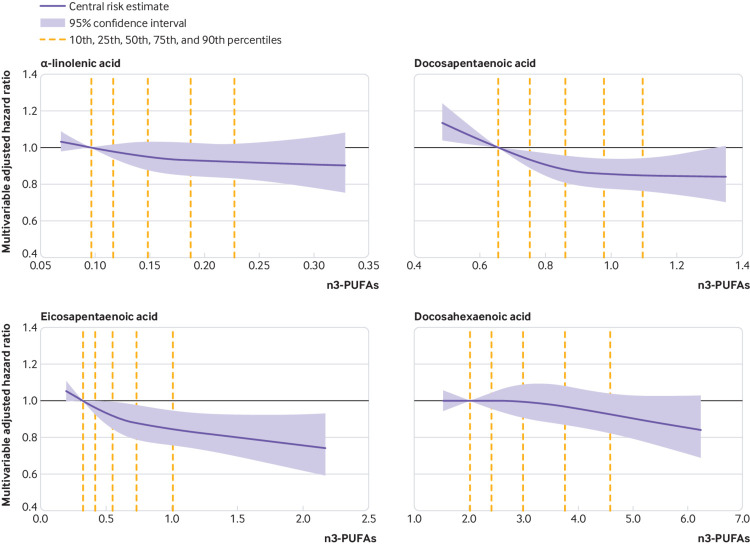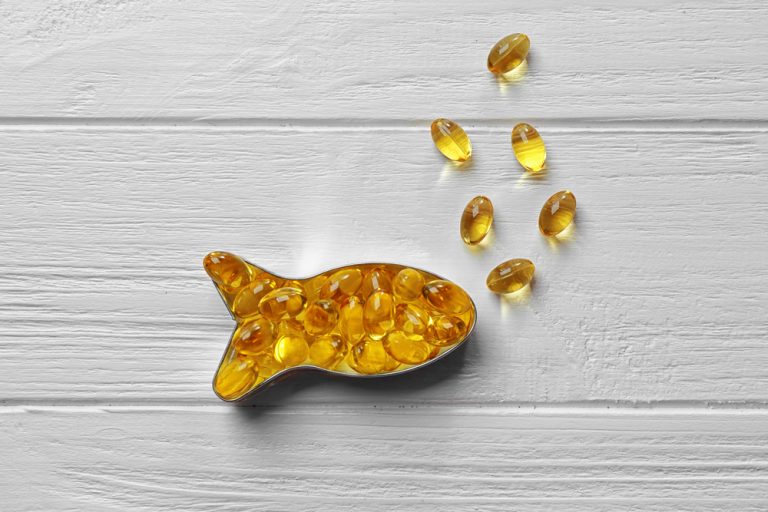The higher levels of omega 3 fatty acids found in seafood are associated with a higher probability of healthy aging in older adults, according to a recent study published in The BMJ.
Healthy aging
As populations around the world live longer, the focus is on healthy aging.It is important for us to make a significant life expectancy without serious chronic diseases and good physical and mental fitness. Previous research suggests that polyunsaturated omega-3 fatty acids (polyunsaturated fatty acids n-3) from seafood and plants can have beneficial effects on the body. They can support healthy aging, but the results are ambiguous.
Aging and Omega 3 - clinical study
A team of American scientists, led by Heidi Lai at the School of Food Sciences and Friedman's Policy at the University of Boston, Tufts, decided to investigate the relationship between circulating blood levels of n-3 PUFA and healthy aging among older people.
The study involved 2,622 adults who participated in the USG study in 1992-2015.The average age of participants at the beginning of the study (basic level) was 74 years, 63% were women and 11% came from groups other than white. The levels of n3-PUFA fatty acids were measured at the beginning of the study and 6 and 13 years later.These included eicosapentaenoic acid (EPA), docosahexaenoic acid (DHA), docosapentaenoic acid (DPA) and alpha-linolenic acid (ALA). The main dietary sources of EPA, DHA and DPA are from seafood, while ALA is mainly found in plants (nuts, seeds and green leafy vegetables).
Based on these measurements, the participants were divided into five groups (quintiles) of the N-3 PUFA level of circulating blood, from the lowest to the highest. By reviewing medical records and diagnostic tests, researchers found that 89% of participants experienced unhealthy aging during the study period, while 11% experienced healthy aging - defined as living free from serious chronic diseases and without mental or physical dysfunction.
After considering a range of other social, economic and lifestyle factors, the researchers found that EPA levels of marine origin in the highest quintile associated with a 24% lower risk of unhealthy aging than those in the lowest quintile.
For DPA levels, the first three quintiles were associated with a 18-21% reduction in the risk of unhealthy aging. However, DHA from seafood and ALA of plant origin were not correlated with healthy aging.

A possible explanation for this effect is that the n-3 PUFAs help regulate blood pressure, heart rate and inflammation, the authors explain.
They indicate that this was an observational study, so you can not make unambiguous conclusions about the cause and effect, and it can not be ruled out that some of the observed risks may be caused by other, unidentified factors. The study had a long (up to 22 years) observation period, and the results remained largely unchanged after further analysis. As such, they say that among older people, the higher levels of circulating N-3 seafood PUFAs were associated with a lower risk of unhealthy aging.
These findings encourage further research into the likely biological mechanisms and interventions associated with polyunsaturated fatty acids in maintaining healthy aging, and provide guidance on increased fish consumption among older adults, they conclude.
In a related editorial, Professor Yeyi Zhu from Kaiser Permanente in the Northern California Division of Research and his colleagues say that this study has made a valuable contribution to understanding the impact that n3-PUFAs can have on aging. However, they warn against using these discoveries to inform about public health policy or nutrition guidelines.
Omega 3 and aging - summary
We live in difficult times, when life expectancy is constantly growing, but paradoxically we are not healthier at all. "According to the World Health Organization's framework for healthy aging, any evidence based on research to improve health later in life is welcome, but additional efforts are needed to speed up this area of research" - they conclude.
Bibliography
- Heidi TM Lai, Marcia C de Oliveira Otto, Rozenn N Lemaitre, Barbara McKnight, Xiaoling Song, Irena B King, Paulo HM Chaves, Michelle C Odden, Anne B Newman, David S Siscovick, Dariush Mozaffarian. Serial circulating omega 3 polyunsaturated fatty acids and healthy ageing among older adults in the Cardiovascular Health Study: prospective cohort study. BMJ, 2018; k4067 DOI: 1136/bmj.k4067






